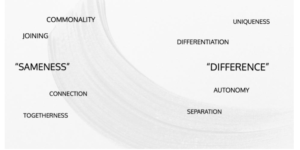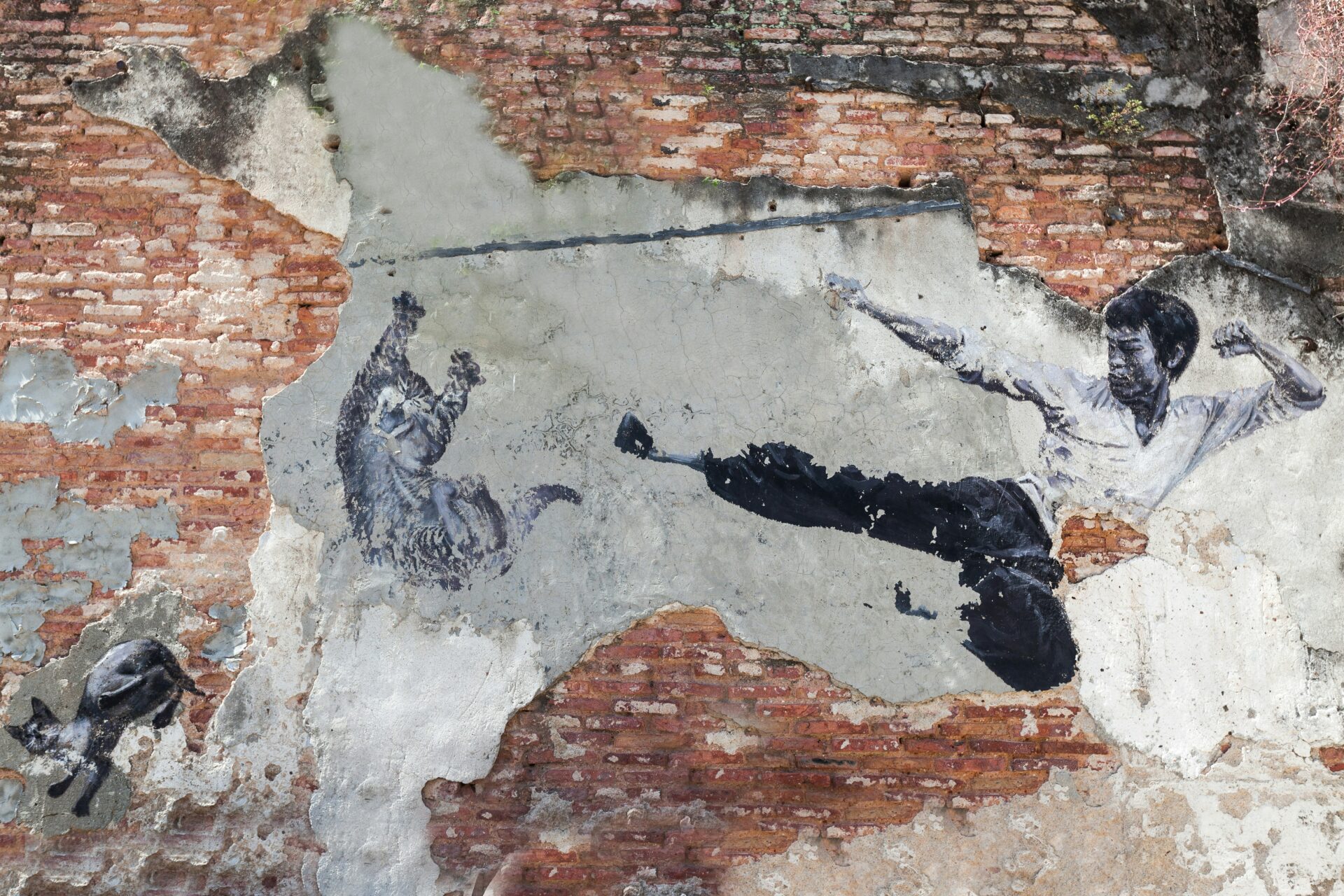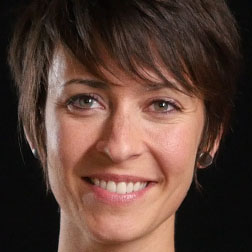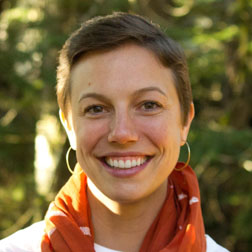The sun sets at La Barceloneta, bathing the sky in hues of orange and pink. Suddenly, a man emerges and snatches my friend’s purse. Reacting instinctively, I grab the strap and, in a surprising twist, attempt a spin kick – which narrowly misses its mark.
The thief punches me in the head.
Undeterred, I yank the bag one last time. He lets go and flees down the beach. This burst of courage, coupled with my latent martial arts skills, came to life without a moment’s notice.
This incident echoes a potent learning experience from the Next Stage Facilitation Intensive. It presented me with more moments to access the braver, often dormant, parts of myself. One key insight was around managing polarities: Those contrasting yet interdependent forces that together, shape a broader purpose.
My decade-long practice of Capoeira, a dance/fighting martial art, is a living example of this concept. It embodies a dynamic balance – moving between fast and slow, attack and retreat, connecting and distancing. This art form elegantly demonstrates the power of polarities at play.
Here are some polarities that surfaced during my journey with Next Stage Facilitation.
Sameness/Difference
For instance, seeking sameness brings comfort and belonging, but an overemphasis can overlook the richness and wisdom that diversity offers.
Differences can spark creativity and innovation. However, too much can result in conflict and isolation – particularly when taken to extremes.

Focussing excessively on one polarity can cause us to miss the other’s value. As facilitators, we navigate this continuous interplay, creating spaces for individual expression and collective belonging, despite different worldviews. Each moment presents to adapt to the group’s dynamics, try on new moves, and dance with change.
Our Flex Flow practice offered a space to flirt with our limits. Each facilitator had twenty minutes to experiment, gaining insights and feedback. This experience gave me a runway to test my boundaries and connect with parts of myself I often neglect.
Our group addressed complex issues like the Israel-Hamas conflict and COVID-19 vaccinations. I tend to seek sameness – using humor as a shield and striving for harmony. But these practice sessions enabled me to go beyond and trust my instincts. This new awareness allowed me to relax my instinct to make things easy. I began to better appreciate and harness differing viewpoints, even when they diverged from my own and others in the group.
During intense moments in our practice, the energy would surge, occasionally triggering participants. Yet, our generative dialogue underscored our shared humanity while respecting our distinctiveness. We saw that multiple realities can be true at once and in turn, build the capacity to transcend and include diverse perspectives.
Yinning/Yanging
The Yin and Yang dynamic represents one of our most universal, inclusive, and timeless polarities. One co-lead excelled in maintaining neutrality, allowing others to ‘do the work.’ Her temperament complemented our other co-lead who brought energy and fire.
The metaphor of salt, fat, acid, and heat, each potent alone but transformative when combined, illustrated our facilitation approach. Like chefs, we mix different flavors to create unique experiences.
In today’s world where ‘doing’ often overshadows ‘being,’ I recognize the importance of balancing Yin (calm, receptive energy) and Yang (active, assertive energy) in my approach.
Prickles/Goo
Our cohort experienced the interdependence of mind and body, swaying between active and passive states, and balancing the prickles and goo.
The intensive was enriched by diverse participants and co-leaders who adeptly responded to the group’s needs. Techniques like mindful pauses, physical movement, and breath awareness added depth to our interactions.
Feedback encouraged me to acknowledge my incongruences (like a single moment having an idea to share and wanting to include a silent participant). Here, I might say, “I’m aware of two things right now…” sharing the dual desires with the group. Or trusting myself, I could simply make a bold choice.
In a recent facilitation session, I was given another opportunity to do just this. Sensing a need for a state change, my inner voice asked, “What’s the flavor right now? How are people feeling in this moment and what might best serve the group?” Attuning to this inner guidance – I popped on some soothing music, invited everyone to turn off their cameras, and encouraged a moment of daydreaming.
This singular move afforded freedom and reflection in the group and became instrumental in creating this collective artifact.
Self-as-Instrument
We each bring our unique selves as instruments to the art of facilitation. By embracing and managing polarities I’ve enhanced the engagement and impact of my sessions. I now more readily lean into differences, balance energies, and cater to both structure and ambiguity
Understanding my preferences, values, and unconscious behaviors, I operate from a place of strength. This allows me to co-create a space for greater flow, enriching both my own and everyone else’s experience.
Like that unexpected encounter in Barcelona, I continue to discover and refine my moves and tap into my potential. Consciously cultivating myself as an instrument is allowing me to serve others with even more gumption.
If you’re new to managing polarities and curious about where to begin, consider starting close in. Get to know yourself intimately. Move a step closer to who you are at this moment. Build radical self-trust and stay open to what is alive. It is here where the doors fling open to meet the world more fully.
Jonas Altman is an entrepreneur, facilitator, coach, and author on a mission to open eyes to new possibilities. Collaborating with the world’s most progressive organizations, he empowers people to elevate and grow. Celebrating its twentieth year, his firm Social Fabric combines collective intelligence, integral facilitation, and presence-based coaching to revolutionize the way we work. Discover more about his transformative practice at www.jonasaltman.com.



2 thoughts on “We Are All the Same. And Different.”
Hi Jonas, thanks for sharing these gems! I appreciate your insights and reflections. And now I am off to learn more about prickles and goo.
You are most welcome Kathleen! Love me some goo and slowly but surely starting to lean into the prickles 🙂